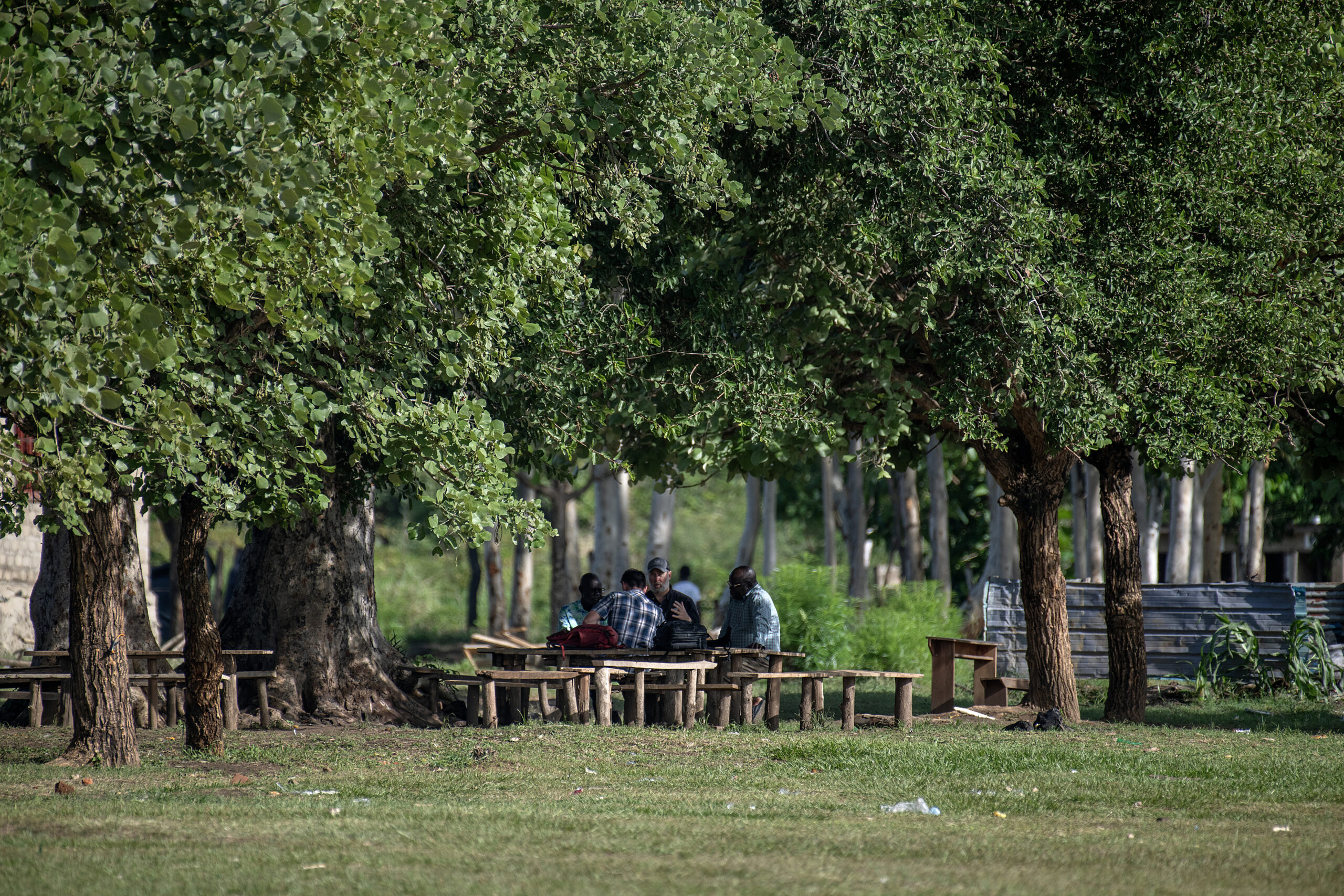
When David, Edward, and Kenneth sat under the trees in South Sudan in 2007, they weren’t dreaming of building an impressive seminary. They were dreaming of something far more urgent: a Bible school that could raise up church planters equipped to be leaders who would not only study the Bible, but actively preach, disciple, and start new churches across their region.
They didn’t have a classroom. Their first office was a mud-walled tukel with a thatched roof. Their first students, seventeen of them, met under three trees for shade. But what they did have was a clear calling: to train indigenous leaders to take the gospel to their own people.
That small gathering became North East Africa Theological Seminary (NEATS), launched in March 2007. Edward led the school, and the team chose the name to reflect their vision for all of Northeast Africa. The curriculum was built on solid Bible teaching, but unlike many traditional seminaries, NEATS added something critical: practicums. Every student would preach. Every student would disciple. Every student would plant churches.
At first, people jokingly called NEATS a “pastor factory.” Later, they started calling it a “missionary factory.” It became the sending engine of Empower One and a living picture of why indigenous leadership is the future of missions.
“The church was never meant to be dependent on outsiders. When you empower one local leader, you reach hundreds who would otherwise never hear the gospel.”
– Empower One team member, South Sudan
The Shift That’s Already Happening
For generations, missions often depended on outsiders traveling across borders to share the gospel. But today, in places like South Sudan, Sudan, and the Congo, the most vibrant church planting movements are led by local men and women who already know the culture, speak the languages, and live among the people.
One of those leaders is Martha, a Nuer woman who has seen God work powerfully through her obedience. When Martha helped organize a gospel conference, over 3,000 people came. But she didn’t stop there. She kept sharing the gospel in surrounding communities. Each time new believers gathered and a church was formed, Martha would find a pastor to shepherd the new congregation, and then she would move on to the next village to start another church.
Her ministry continues to multiply today, one community after another.
“When we train leaders from here, we don’t have to teach them how to love the people—they already do.”
– Church Planter & Trainer, NEATS Bible School
Why Indigenous Leaders Matter
- They stay when others leave. Local leaders don’t need visas or permits. This is their home.
- They speak the heart language. The gospel comes alive when shared by someone who fully understands the culture.
- They multiply naturally. Indigenous leaders don’t just lead churches, they launch movements.
At Empower One, we don’t have to imagine this model because we see it happening every day through leaders like David, Edward, Kenneth, and Martha. Their work is bearing fruit because they are equipped, empowered, and trusted to lead.
Our Role: Equip and Send
Our mission isn’t to lead every church or manage every ministry. Our role is to train and equip leaders like these, so that the gospel spreads far beyond what any one person or organization could do alone.
Through NEATS, through our women’s leadership training, and through dozens of church planting networks, God is raising up indigenous leaders who will take the gospel where it’s never been.
Want to Be Part of This Movement?
- Pray for indigenous leaders serving across Northeast Africa.
- Give to support the training, equipping, and sending of local leaders.
- Join The Village, our monthly giving community that sustains this growing movement.
The future of missions is already here. And it’s indigenous.
Because when you empower one, you reach many.